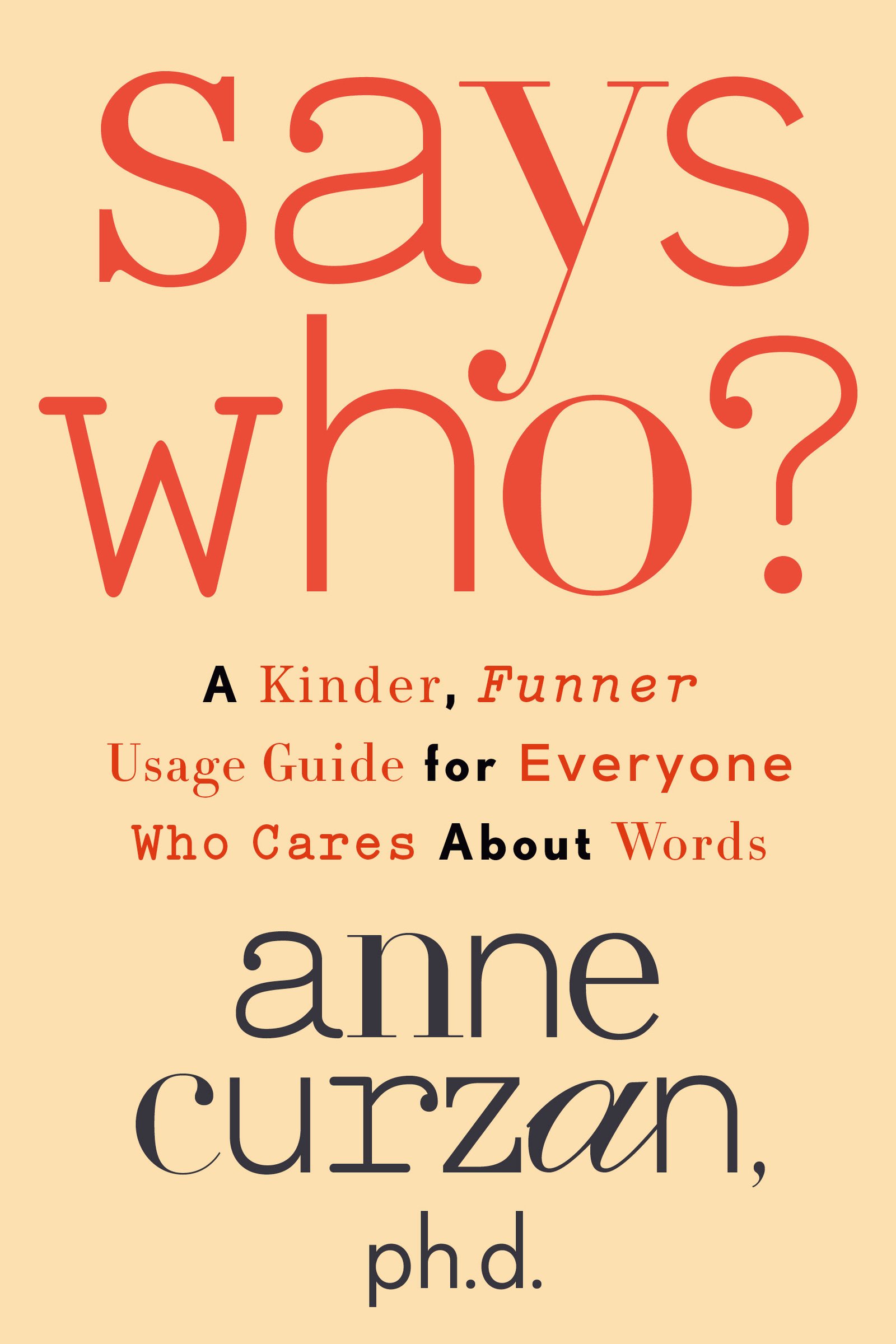
24 May Book Review of Says Who? A Kinder, Funner Usage Guide for Everyone Who…
A Love Letter to Language: My Thoughts on Says Who? by Anne Curzan
I picked up Says Who? A Kinder, Funner Usage Guide for Everyone Who… because, like many book lovers, I’ve always had a curious relationship with language. It’s a world rich in nuance, and every new word I stumble upon feels like a little treasure. Anne Curzan, a linguist and educator, promises a friendly exploration of our everyday language dilemmas — and she delivers!
Curzan invites readers to discover the tug-of-war between our inner “grammando” and “wordie.” The former, our prescriptivist side, feels the urge to correct and criticize. The latter, our descriptivist self, revels in the beauty of language’s evolution. This internal dialogue resonated deeply with me, as I’ve caught myself in both roles during countless conversations and writing sessions. Curzan’s perspective encourages us to embrace curiosity over judgment, and I couldn’t help but cheer her on.
The book unfolds like a delightful conversation rather than a dry grammar manual. Curzan gracefully unpacks the nuances of word usage and grammatical “rules” that often feel more like suggestions than hard truths. For instance, her discussion on "hopefully" as a sentence adverb struck me as incredibly significant; if words evolve, why shouldn’t usage? I found myself nodding along when she asserted that terms like “literally” have transformed over time, not through some nefarious force, but as an organic part of our linguistic landscape. Curzan empoweringly argues, “From historical example, in the inner grammando versus inner wordie showdown, time is on the inner wordie’s side.” This had me reflecting on my own tendencies to cling to outdated rules rather than celebrate language’s inherent adaptability.
Curzan’s writing style is refreshingly engaging and approachable. She weaves in anecdotes and historical context that not only educate but delight. The way she brings Shakespeare and Austen into discussions about singular “they” left me both amused and reassured — if the greats used it, surely we can too! Quotes like “there is no right answer here. it’s about aesthetics, not correctness” lingered with me long after I turned the last page, serving as a poignant reminder of the fluidity of language.
What struck me most personally was Curzan’s validation of our perceptive instincts. She suggests that rather than judging linguistic variations, we should admire them for their authenticity. This philosophy is one I strive to encapsulate in my own writing, and it feels revolutionary to embrace the idea that my aesthetic preferences can guide my grammar choices. Curzan has a way of transforming what could be a dry subject into a lively debate about identity, culture, and self-expression.
Says Who? is for anyone who has ever felt intimidated by grammar rules or felt the urge to correct a friend’s wording. It will appeal to language enthusiasts, educators, and casual readers alike. Curzan’s warmth invites us all to lean in closer, reevaluating our relationship with the very words we use every day.
In the end, reading Curzan’s book was like sitting down with an old friend to discuss the quirks of language over a cup of coffee. It left me feeling validated, inspired, and more curious than ever about the evolution of the words we often take for granted. I can’t recommend it enough!
Discover more about Says Who? A Kinder, Funner Usage Guide for Everyone Who… on GoodReads >>









